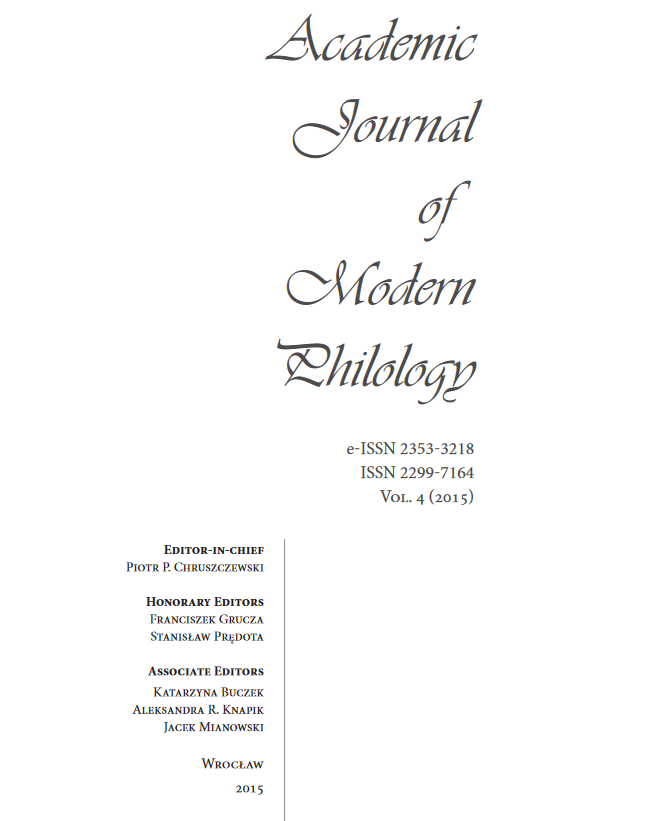Intellectual Empathy as a Socio-Cultural Facet of Communication: The Case of English Modals from the Perspective of Polish
Intellectual Empathy as a Socio-Cultural Facet of Communication: The Case of English Modals from the Perspective of Polish
Author(s): Kamila TurewiczSubject(s): Language and Literature Studies, Foreign languages learning, Communication studies, Semantics, Sociolinguistics
Published by: Komisja Nauk Filologicznych Oddziału Polskiej Akademii Nauk we Wrocławiu
Keywords: communication; sociolinguistics; semantics; foreign language learning; concepts; metaphor
Summary/Abstract: The paper addresses the issue of compatibility between the speaker’s intention and the hearer’s expectations in a communicative act as an issue related to what I would like to call “intellectual empathy.” The immediate inspiration for the topic is the following quotation from Susan M. Ervin-Tripp (1964: 93): “The possibility of insult and of humor based on linguistic choices means that members agree on the underlying rules of speech and on the social meaning of linguistic features.” Langacker’s Cognitive Grammar allows us to accommodate the extra-linguistic facets of meaning construction, thus to identify the role of the speaker/hearer’s cooperation in the construction and reconstruction of meaning in a particular usage context, the role that is dependent on the degree of intellectual empathy between the speech act participants. English modals have been selected as an aspect of the language illustrating the relevance of linguistic choices resulting from socio-cultural determinants behind intellectual empathy
Journal: Academic Journal of Modern Philology
- Issue Year: 2015
- Issue No: 4
- Page Range: 121-134
- Page Count: 14
- Language: English

